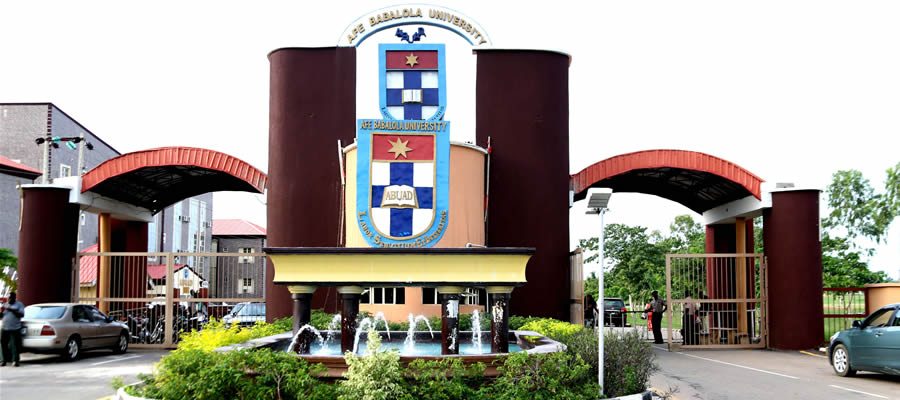NEWS
Effective Standby Force’ll Impact ECOWAS Development —Group

The Abuja School of Social and Political Thought (ASSPT) says establishing an ECOWAS Standby Force will have a pragmatic impact on the sub-region’s development.Director of the School, Dr Sam Amadi, stated this at a policy dialogue with the theme, “Peace and Democracy in West Africa: The Need for an Effective Standby Force,’’ on Friday in Abuja.
The proposed standby force that is being formed by ECOWAS is to be made up of military, police and civilian components, to address security threats within the sub-region. Amadi said that the proposal by the ECOWAS Heads of State for the force aimed at reinforcing a stable environment for democracy to continue to thrive in West Africa.“For us, the standby force or dealing with the state of coup in West Africa has pragmatic impact for development.“If you look at the West African region, it is probably the poorest region in the world, in terms of Gross Domestic Products (GDP) growth, income-poverty, vulnerability and all levels of multidimensional poverty.”If you factor that to our high standing in terms of terrorism index and state failure index, it’s really a dangerous mix of poverty, instability, and endemic fragility.“That’s why the Abuja School has taken the idea of thinking on how to look for ideas that can constitute the trigger for a much more pragmatic policy for them,’’ he said.Amadi said that the dialogue was to examine the effectiveness of the ECOWAS Standby Force in addressing regional security challenges such as terrorism, internal conflict, and regime instability.He said that the choice of the topic was important, considering recent developments in West Africa, especially cases of coups in the sub-region.He noted that some were successful, while others were unsuccessful, with Mali, Niger and Burkina Faso no longer operating democracy. A professor of Political Science, Nasarawa State University, Keffi, Jideofor Adibe, in his presentation, said that the standby force was not a new concept, as it was initiated in 2001 by African Union in five regions.He said the aim at that time was to have 25,000 personnel from three regional economic communities, and two regional mechanisms.“At that time, it was expected to be multidisciplinary, comprising the military, the police and civilian contingents that act under the direction of the African Union,” he said.Adibe said that globally, different regions have their different attempts at establishing a standby force, but no nation had been able to have an effective standby force.He identified corruption, inadequate equipment and technology, peculiar interests by past colonial masters as some of the challenges confronting the effectiveness of the force.On his part, retired Maj.-Gen. Nicholas Rogers, former Commander of Operation Safe Haven, said it would take time for the ECOWAS Standby Force to materialise.He said the force was meant to be deployed whenever there is a crisis between ECOWAS member states.He said they were meant to be deployed in a situation of internal conflict leading to humanitarian catastrophes that could also jeopardise the ECOWAS region’s peace.“It was also meant to challenge the issue of regime change by force and when there is a major violation of human rights issues.“But if you ask me today, I will tell you none of these reasons can hold fast,’’ he said.Rogers identified loopholes in the operational framework of ECOWAS, inadequate funding, instability and language barrier as some of the challenges facing the operation of the force.He said the issue of a standby force could only work when countries have similar identities and technology, peace in about 75 per cent of the countries involved.“It is difficult for a region that is economically poor to have a standby force, because you’re talking about equipment, technology, troops on the ground, allowance for the troops, medical programmes and air support.“You don’t do standby forces with just paperwork; you must have the financial capability and technology to be able to say you want to have a standby force,’’ he said.Rogers also stressed the need to review the operational framework of ECOWAS, if the standby force must work.Speaking on the security situation in the country, Rogers urged the Nigeria government to continue to support the security agencies.He said the support should be in terms of recruiting and training more personnel, acquiring more modern technology and equipment.He also stressed the need for Nigerians to give the needed support to the security agencies, while calling for attitudinal change among Nigerians and security officers, especially police officers. (NAN)Education
ICPC, COREN Working to Curb Quackery in Engineering – Don

Former Registrar, Council for the Regulation of Engineering in Nigeria (COREN), Prof. Adisa Bello said the council is collaborating with the Independent Corrupt Practices Commission (ICPC), to curb quackery in Nigeria.
Bello stated this in Bauchi on Monday during a public lecture and launching of a magazine by the final year students of Engineering Department, Abubakar Tafawa Balewa University (ATBU), Bauchi.
According to Bello, COREN has an Engineering Regulatory Monitoring Unit visible and working in 29 states of the country.
“If the unit finds anyone culpable of quackery, the person will be handed to the ICPC for further prosecution.
“COREN with the council for regulation of Engineering in Nigeria started in 1970, and its laws were amended in 1992, 2004 and 2018.
“The specific one I’m referring to is the amendment in 2018, which categorically gave COREN the mandate to prosecute offenders of engineering,” he said.
He warned that anybody that was not a registered practitioner in engineering and practicing engineering would be prosecuted by COREN.
“And COREN is doing everything humanly possible to ensure that this is done. COREN currently has a memorandum of Understanding with the Independent Corrupt Practices Commission, and this commission is doing everything possible to ensure that offenders are prosecuted,” he said.
Bello, also a lecturer in the department of Mechanical Engineering, ATBU, recounted how a multi-billion Naira 21 storey building collapsed in Lagos, where COREN did investigation, after which some engineers were found wanting and handed over to the ICPC for prosecution.
“COREN has an investigative panel and once this panel establishes that someone is culpable, it takes you to the ICPC and then straight to the court.
“In my day, we normally write examinations for qualifications.
”We have a situation currently where an individual came with a fake result and we called on the ICPC and they have done all their investigations, and found the person culpable and right now he is under prosecution,” he said.
The don called on higher institutions and academics to ensure that all engineering programmes were properly accredited by the National University Commission (NUC) and COREN.
In a paper entitled: Smart Cities and the role of Engineering and Technology in building the Urban future, Dr. Ibrahim Ikara, Head of Department, Civil Engineering, ATBU, said engineers played a critical role in smart cities.
Ikara said that this could be through the design of modern infrastructure, disaster resilient systems and eco-friendly neighborhoods.
Represented by Muhammad Suleiman, the don listed some of the challenges of building smart cities in developing nations to include infrastructure deficit, limited funding, and low level of digital literacy among citizens.
He urged policymakers to prioritise Science, Technology, Engineering and Mathematics (STEM), to achieve the set goals.
Education
Afe Babalola Canvasses Better Education Sector to Check Insecurity

Founder of Afe Babalola University, Ado-Ekiti (ABUAD), Afe Babalola, has identified Nigeria’s declining educational standards as a key driver of the country’s escalating crime rate.
The legal luminary spoke recently during a courtesy visit by a delegation from Ekiti State University (EKSU), led by its Vice-Chancellor, Prof.
Joseph Babatola Ayodele.According to him, “half education is more dangerous than no education.
Many of those engaged in criminal activities today are products of a failing educational system. We must urgently rewrite Nigeria’s educational narrative to foster national development and security.”Babalola challenged policymakers, institutions, and stakeholders to prioritise research grants, innovation, and academic excellence as critical tools for national progress.
In her welcome address, ABUAD’s Vice-Chancellor, Prof. Smaranda Olarinde, lauded Babalola’s visionary leadership, crediting him for establishing the university as a trailblazer in agriculture, pharmaceuticals and quality healthcare education and delivery.
She spotlighted the peerless and paperless ABUAD Multi-System Hospital, which leading healthcare stakeholders have endorsed as the “Well-equipped hospital in Sub-Saharan Africa” as the nation’s antidote to medical tourism.
Taking cognisance of the under-representation of women in the visiting EKSU delegation, the Vice Chancellor canvassed greater gender balance in leadership, just like in ABUAD, where the Vice Chancellor, Registrar and the Librarian are ladies among several leaders in the 15-year-old university.
Responding, the visiting VC praised Babalola as “an unrepentant philanthropist and proud alumnus, who constantly adds value to society.”
He expressed admiration for ABUAD’s state-of-the-art infrastructure, and called for deeper collaboration between the two institutions in agriculture, research and student exchange programmes.
“We have much to learn from ABUAD Farm. With 14 hectares of tomato farms at EKSU ready for harvest, we recognise the need to deepen expertise in agriculture, a vital sector for Nigeria’s future,” Ayodele remarked.
Education
JAMB Inaugurates Special Committee on Examination Infraction

The Joint Admissions and Matriculation Board (JAMB) has inaugurated a special committee to investigate cases of technology-driven malpractice detected during the 2025 Unified Tertiary Matriculation Examination (UTME).
Inaugurating the 23-member committee in Abuja yesterday, JAMB’s Registrar, Prof.
Ishaq Oloyede, expressed concerns over the rising sophistication in perpetrating exam fraud.Oloyede revealed that the results of 6,458 candidates remained under investigation for alleged involvement in high-tech cheating.
“This year, we came across a number of strange things and we felt that it would be better if we expand our resources.
“We believe that God has endowed this nation with a lot of resources that we can tap from,” Oloyede said.
He noted that malpractices had evolved beyond traditional schemes into “technologically sophisticated forms,” including multiple cases of biometric and identity fraud by some accredited CBT centres and candidates.
Oloyede stressed the need for urgent action to protect the credibility of examinations.
“Examination malpractice is something that we must fight with every pinch of blood in our veins.
“This is because unchecked fraud could harm several sectors and tarnish Nigeria’s image,” he said.
The registrar disclosed that while 141 cases of “normal” exam malpractice had been sent to JAMB’s disciplinary committee, the committee would handle the “extraordinary infractions,” such as image blending, albinism falsification, finger pairing, and attempts to breach some CBT centres’ Local Area Network.
He listed the terms of reference of the committee to include: Investigate all the cases of image blending, finger blending, false claim of albinism and result falsification in the 2025 examination.
“Identify the methods, patterns, tools, and technologies used to perpetrate this infraction.
”Review current examination and registration policies and recommend improvements,” he said.
Other terms of reference, he said, are to determine the culpability or otherwise of each of the 6,458 suspected candidates whose results, excluding the albinism group, are still being withheld, among others.
“We have chosen three weeks because justice delayed is said to be justice denied.
“In about four weeks, admission will close. And we believe that those who are found not to be guilty should have the opportunity,” he added.
Responding, the committee chairman Dr. Jake Epele, thanked Oloyede’s leadership and pledged the committee’s commitment and dedication to the assignment.
“Examination malpractice is not just a breach of rules. It is a direct assault on integrity, merit, and the future of our nation’s youth.
“The task before us is therefore a sacred one. I believe that everyone in this committee, you don’t have a committee job. You have a call from God Almighty.
“The call is to defend the credibility of our examination, restore public confidence, and ensure that diligence and honesty remains the true pathway to opportunity,” he said.
Members of the committee include Prof. Muhammad Bello, Prof. Samuel Odewummi, Prof. Chinedum Nwajiuba, Prof. Tanko Ishaya, Prof. Ibe Ifeakandu, and Police Commissioner Fatai Owoseni (rtd.)
Others are: Dr Chuks Okpaka of Microsoft Africa, and the President of the National Association of Nigerian Students, among others.


















